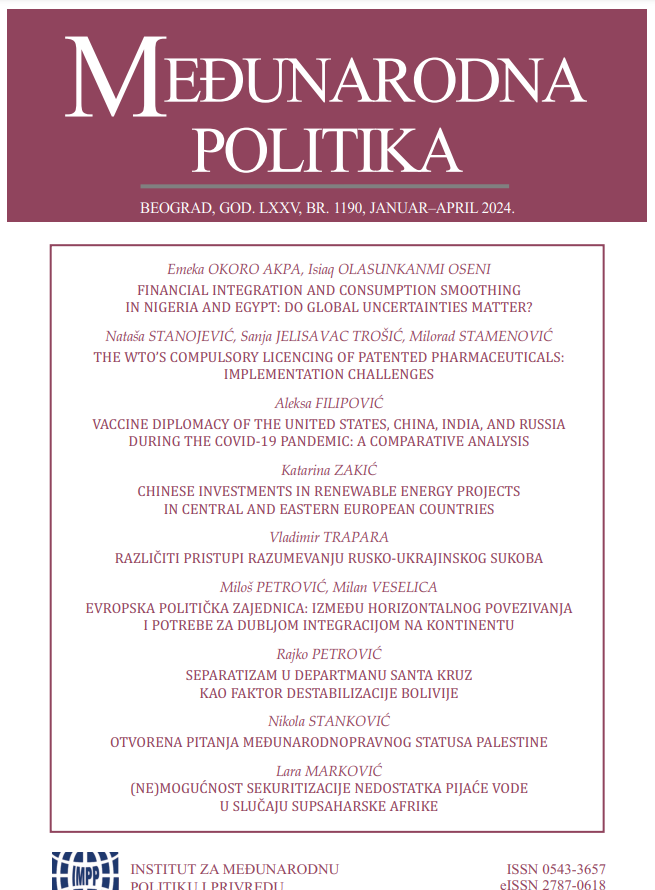European Political Community: Between Horizontal Connectiveness and the Need for Deeper Integration on the Continent
European Political Community: Between Horizontal Connectiveness and the Need for Deeper Integration on the Continent
Author(s): Miloš Petrović, Milan VeselicaSubject(s): Security and defense, EU-Approach / EU-Accession / EU-Development, Geopolitics
Published by: Институт за међународну политику и привреду
Keywords: cooperation; neighbourhood; European Union; Russia; Initiative; dialogue; war
Summary/Abstract: In this paper, the authors investigate the development and scope of the European Political Community as a new initiative of the European Union. The establishment of the European Political Community will be examined in the changed geopolitical context created by the invasion of Ukraine. The European Union aspires to demonstrate its readiness and ability to decisively influence opportunities on the entire continent, especially in circumstances of strategic rivalry with Russia. However, the longer-term goals, and therefore the outcomes of the European Political Community, are not completely clear since the initiative has only existed since the Prague Summit (second half of 2022). The authors are primarily guided by historical analysis (a chronological overview of the development of the initiative) and elements of a liberal intergovernmental approach. The paper argues that if the Initiative is viewed as a format for the occasional gathering of state leaders of all European countries (opposed to aggression against Ukraine), it can be viewed as primarily successful, as evidenced by several summits attended by many European leaders. However, if it is seen as the nucleus of a new international organisation or institutionalised platform for cooperation in Europe, there are many challenges, starting from the fact that many similar bodies already exist (the Council of Europe, the Organisation for Security and Cooperation in Europe, etc.) to the fact that numerous candidates for EU membership have reservations about participating in a format that, hypothetically, can serve as an alternative forfull membership. In this sense, the aspect of institutional identity, i.e., the specific field of action, is considered and, consequently, the purpose of such an initiative, bearing in mind the above-mentioned challenges.
Journal: Међународнa пoлитика
- Issue Year: 75/2024
- Issue No: 1190
- Page Range: 143-168
- Page Count: 26
- Language: English

